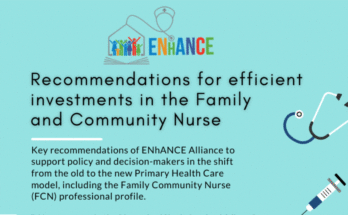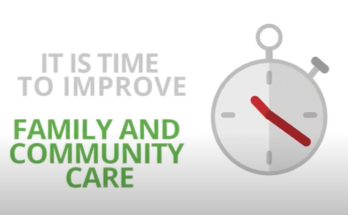Welcome to the first ENhANCE newsletter
The ENhANCE consortium is a 36-month EU-funded Erasmus+ project running until December 2020. It is a Sector Skills Alliance project for the design and delivery of Vocational and Educational Training (VET) for graduated (registered) nurses at EQF level 6.
The partnership brings together existing EU networks in the field of primary health care, higher educational institutes in nursing and other VET experts, nursing regulatory bodies and professional associations; public and private employers in the nursing sector as well as informal carers.
This broad and multidisciplinary approach will enable the development of a Professional Profile and the piloting of a European “reference” curriculum for Family and Community Nurse (FCN) – an area where there will be future shortages of sufficiently competent nurses.
Meet the ENhANCE Project Lead
 Francesca Pozzi, PhD, is researcher at the Istituto Tecnologie Didattiche (ITD), one of the research institutes of the Italian National Research Council (CNR).
Francesca Pozzi, PhD, is researcher at the Istituto Tecnologie Didattiche (ITD), one of the research institutes of the Italian National Research Council (CNR).
Her main research interests include: technology-enhanced learning, learning design, strategies to support collaborative learning, teacher training, gamification. Francesca has participated to several EU-funded projects and coordinated a number of Erasmus+ projects. She is author of several scientific publications and is co-editor of the Italian Journal of Educational Technology.
3 questions to Francesca
What is the rationale behind this project?
“Health and social care systems need to respond to changing health- and long-term care needs, mainly driven by population ageing. These systems need to increasingly shift their focus from acute care in hospitals to new primary healthcare models defined as integrated, people-centred care in the community.
In this context, there is a need to develop professional profiles with competences and skills in the field of primary care that are able to meet these future challenges and deliver high quality and safe community-based and person-centred care. According to the most recent WHO recommendations, Family and Community Nurses can play a key role in this panorama.”
What is the overall aim of the project?
“The overall aim of ENhANCE is to increase the specialization level of Family Community Nurses (FCN) in Primary Health Care and to accelerate this necessary shift to safe and high quality community-based care.”
How does ENhANCE plan to do this?
“A range of activities are foreseen, aimed to define a new FCN Professional Profile based on existing WHO and EU policy recommendations. The FCN Professional Profile will serve as a basis for the definition of a FCN European Curriculum, which will in turn be piloted in 3 countries. In order to have a multiplier effect and foster further adoption of the FCN Curriculum across Europe, guidelines and teaching/learning materials will be also produced, in such a way that any VET provider could take up the main project outputs up and adapt them to the national and local context.”
Project activities
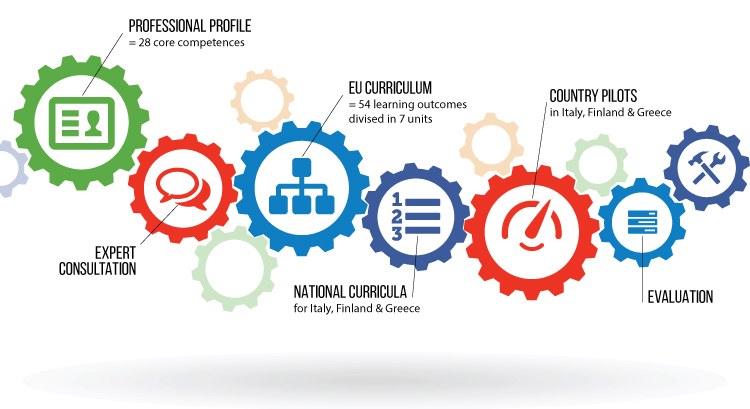
Developing a Professional Profile for Family and Community Nurse
A major milestone in the first year of ENhANCE was the definition of a Professional Profile for the Family Community Nurse – a task led by UNIGE, the University of Genoa, that now serves as the backbone for the FCN curriculum development. ENhANCE used a consensus-based approach to agree on 28 core competencies which formed the basis for defining the FCN Professional Profile. It involved several eDelphi rounds with a total of 23 experts participating from 10 European countries. The panel of experts comprised nursing academics, regulatory board members, nursing service directors and experts in family and community nursing.
The first version of European Curriculum for Family and Community Nurse will soon be piloted!
Based on the Professional Profile and the 28 core competences, SI4FLIFE, led the subsequent work to develop a first version of the FCN Curriculum to be piloted and further refined.
Guidelines to support higher educational institutes in developing FCN curricula at the local level
As mentioned above, given the great diversity in how programmes in nursing education are delivered across Europe, the different cultural and occupational contexts for such FCN nurses, a set of guidelines providing general recommendations and practical tips have additionally been developed and will soon be made available here.
These intend to assist VET providers in how to implement the FCN curriculum at a local, regional or national level in the field of postgraduate nursing by alerting them to potential issues of importance such as social security entitlements, insurance coverage and privacy issues etc.
Selection of past conferences and external events where ENhANCE was presented
Various members of ENhANCE project participated and presented first outcomes of ENhANCE, some recent ones being:
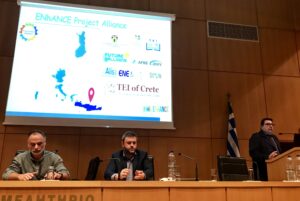
PanCretan Nursing Congress, 9 February 2019
Read more here
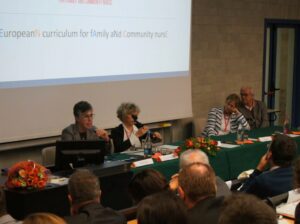
ENhANCE at the III AIFeC (Family and Community Nurse Association) National Conference: “Family and Community Nurse in XXI century”, 25-26 October 2018
Read more here
Relevant European policy developments
Challenges of long term care
The European Pillar of Social Rights (principle 18) states that everyone has the right to affordable long-term care of good quality, in particular home-care and community-based services. At the same time, public expenditure for long-term care is expected to be an item that will rise faster than health care and pensions. A synthesis report by the European Social Policy Network, provides a summary of the common challenges faced by long-term care systems in 35 European countries, as well as a detailed country-by-country analysis.


